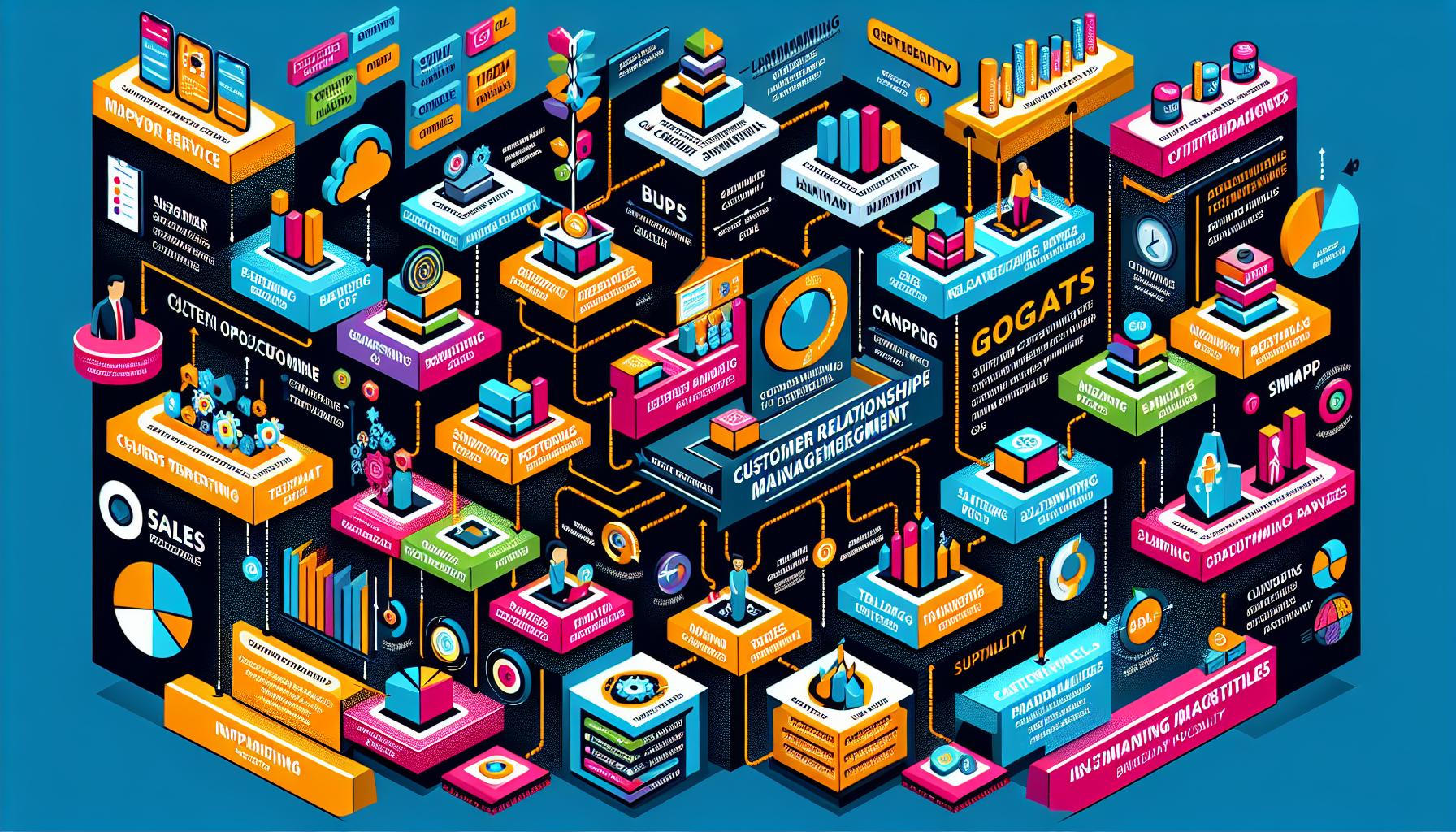In the intricate world of Sales Funnel Building, achieving CRM goals is like unraveling a complex puzzle to drive success and growth. CRM goals guide businesses in understanding their customers, building strong relationships, and ultimately increasing revenue. Let’s delve into the realm of CRM goals and explore how they can revolutionize your sales funnel strategy.
Table of Contents
- Key Objectives of CRM Goals
- Strategies for Setting Effective CRM Goals
- Measuring Success: KPIs for CRM Goals
- Customizing CRM Goals to Your Business Needs
- Achieving Long-Term Growth Through CRM Goals
- The Conclusion
Key Objectives of CRM Goals

When it comes to achieving success with CRM software, it is crucial to establish clear and measurable goals. These objectives serve as a roadmap for your team, guiding them towards optimal performance and efficiency. Here are some key objectives to consider when setting CRM goals:
<ul>
<li><strong>Improving Customer Relationships:</strong> One of the primary goals of CRM is to enhance and maintain positive relationships with customers. This can be achieved by implementing personalized communication strategies, monitoring customer interactions, and providing exceptional customer service.</li>
<li><strong>Increasing Sales Revenue:</strong> CRM can help streamline the sales process, identify leads, track opportunities, and ultimately increase sales revenue. By setting goals related to sales targets, conversion rates, and pipeline management, you can optimize your sales funnel and drive growth for your business.</li>
</ul>
Strategies for Setting Effective CRM Goals
Setting effective CRM goals is essential for maximizing the potential of your business. To ensure success, consider implementing these key strategies:
<ul>
<li><strong>Define Clear Objectives:</strong> Clearly outline what you want to achieve with your CRM system. Whether it's improving customer retention, increasing sales, or streamlining communication, having specific goals will guide your efforts.</li>
<li><strong>Set Measurable Targets:</strong> Establish quantifiable metrics to track your progress towards achieving your CRM goals. This could include metrics like customer acquisition rate, conversion rate, or average response time.</li>
</ul>
<p>By setting clear objectives and measurable targets, you can effectively evaluate the success of your CRM strategy and make informed decisions to drive your business forward.</p>
Measuring Success: KPIs for CRM Goals

Setting CRM goals is an essential step in any sales funnel strategy. However, it’s equally important to track and measure the success of those goals in order to make informed decisions and optimize your efforts. Key Performance Indicators (KPIs) can help you assess the effectiveness of your CRM goals and ensure that you’re on the right track towards achieving your sales objectives.
When it comes to measuring success in CRM goals, there are several KPIs that you should consider monitoring. These KPIs can provide valuable insights into the performance of your sales funnel and help you identify areas for improvement. Some key KPIs to track include:
- Conversion Rate: Measure the percentage of leads that successfully convert into customers.
- Customer Retention Rate: Track the percentage of customers who continue to engage with your brand over time.
- Sales Pipeline Velocity: Monitor the speed at which leads progress through your sales funnel.
- Customer Lifetime Value: Calculate the total value a customer brings to your business over the course of their relationship with your brand.
Customizing CRM Goals to Your Business Needs

When it comes to , it’s important to consider a few key factors. First and foremost, you’ll want to identify the specific objectives that are most important to your company. Whether it’s increasing sales, improving customer retention, or streamlining processes, setting clear goals will help guide your CRM strategy.
Next, take the time to analyze your current data and workflows to determine how your CRM system can best support your goals. This may involve customizing fields, creating automated processes, or integrating with other tools. By tailoring your CRM goals to fit your unique business needs, you can maximize the benefits of your CRM system and drive success for your company.
Achieving Long-Term Growth Through CRM Goals
Implementing effective Customer Relationship Management (CRM) goals is crucial for businesses looking to achieve long-term growth. By setting clear objectives and utilizing CRM tools to track and analyze customer interactions, organizations can better understand their target audience, personalize their marketing strategies, and ultimately drive revenue.
Some key CRM goals to consider for long-term success include:
- Improving customer retention: By focusing on building strong relationships with existing customers, businesses can increase loyalty and encourage repeat purchases.
- Increasing customer satisfaction: By gathering feedback and addressing customer needs, businesses can improve overall satisfaction levels and build a positive brand reputation.
- Enhancing cross-selling and upselling opportunities: By analyzing customer data and behavior, businesses can identify opportunities to promote related products or services to increase revenue.
The Conclusion
In conclusion, setting CRM goals is essential for any business looking to build and maintain strong relationships with their customers. By defining specific objectives, businesses can effectively track their progress, identify areas for improvement, and ultimately drive revenue growth. Whether your goal is to increase customer retention, boost sales conversions, or streamline communication processes, a well-defined CRM strategy can help you achieve success. Remember, the key to reaching your CRM goals is consistency, dedication, and a willingness to adapt and evolve as needed. So, set your goals high, stay focused, and watch your business thrive.

